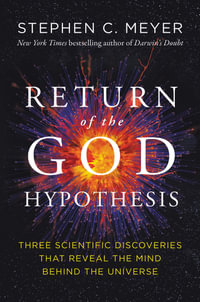| Acknowledgements | p. vii |
| Prologue | p. ix |
| Introduction | |
| Mathematics and Culture | |
| An introduction to Oswald Spengler's pioneeing work on "numbers and culture" in The Decline of the West. This is the source of a "weak" sociology of mathematical traditions, and a "strong" sociology of mathematics as a social world (mathematics as social relations and worldview). The "weak" perspective guides the discussion in Part II, the "strong" perspective guides the discussion in Part III | |
| Mathematics rom the Ground Up | p. 10 |
| The social activities of everyday life in ancient societies give ise to aithmetic and geometry, the classical forms of mathematical work. | |
| Mathematical Traditions | |
| The Mathematics of Survival in China | p. 23 |
| From the legend of Yii the Great and the Lo River tortoise to the "golden age *" in T'ang. | |
| Mathematics in Context: The Arabic-Islamic Golden Age | p. 35 |
| A "golden age of mathematics" (700-1400 in the Arabic-Islamic world) is sketched with an emphasis on histoical conditions and cultural settings. | |
| Indian Mathematics: A History of Episodes | p. 47 Sociologi |
| Mathematics and Renaissance in Japan | p. 55 |
| The seventeenth century "renaissance" makes Japan a center of oiental mathematical work; the mathematical revolution ends abruptly with the consolidation of power by the Tokugawa shoguns. | |
| Conflict, Social Change, and Mathematics in Europe | p. 61 |
| "Scandals'* are shown to reflect transitions to new conditions of competition and conflict: the cases of Cardan and Tartaglia (1540s) | |
| Newton and Leibniz (1670-1730), and Cauchy, Abel, and Galois (1826-1832) represent key transitional scandals from the "robber baron" era | |
| The Cantor-Kronecker case (late nineteenth century) represents a transition from the robber baron era to the era of "saintly politicians" who emphasize the collective side of science in an era of competition between "schools" of mathematics | |
| The group of mathe¼ maticians known as Bourbaki is a key example | |
| African Mathematics and the Problem of Ethnos- cience | p. 89 |
| On Modes of Thought | p. 91 |
| Mathematics and God | p. 94 |
| Math Worlds | |
| Mathematics as Representation | p. 99 |
| Survey of a wide range of issues, examples, and conjectures in the sociology of mathematics that bear on the problem of representation. | |
| Foundations of the Sociology of Pure Mathematics | p. 129 The soci |
| The Social Relations of Pure Mathematics | p. 149 Includes |
| Bibliographic Epilogue | p. 177 |
| Notes to Chapter 7 | p. 179 |
| Bibliography | p. 181 |
| Name Index | p. 189 |
| Subject Index | p. 195 |
| Table of Contents provided by Publisher. All Rights Reserved. |
























